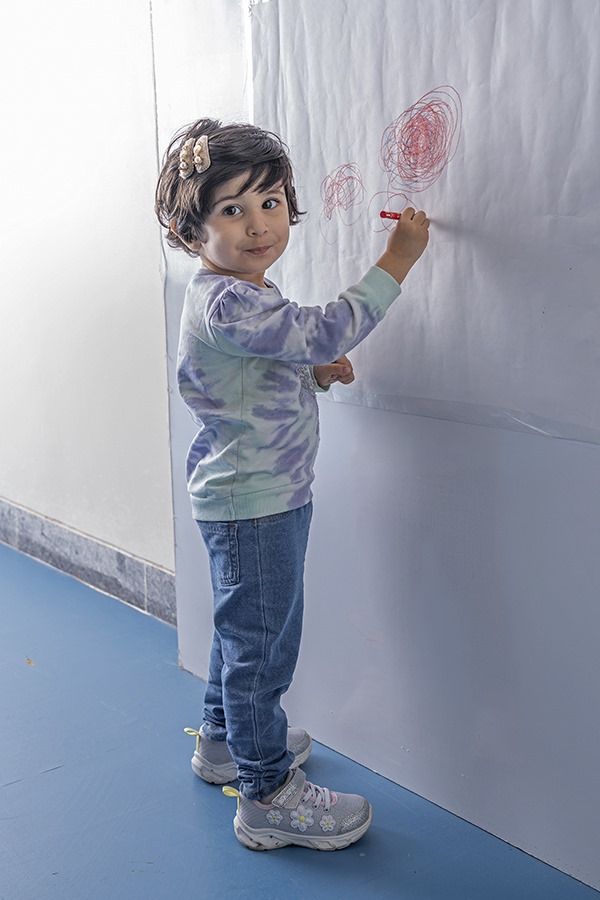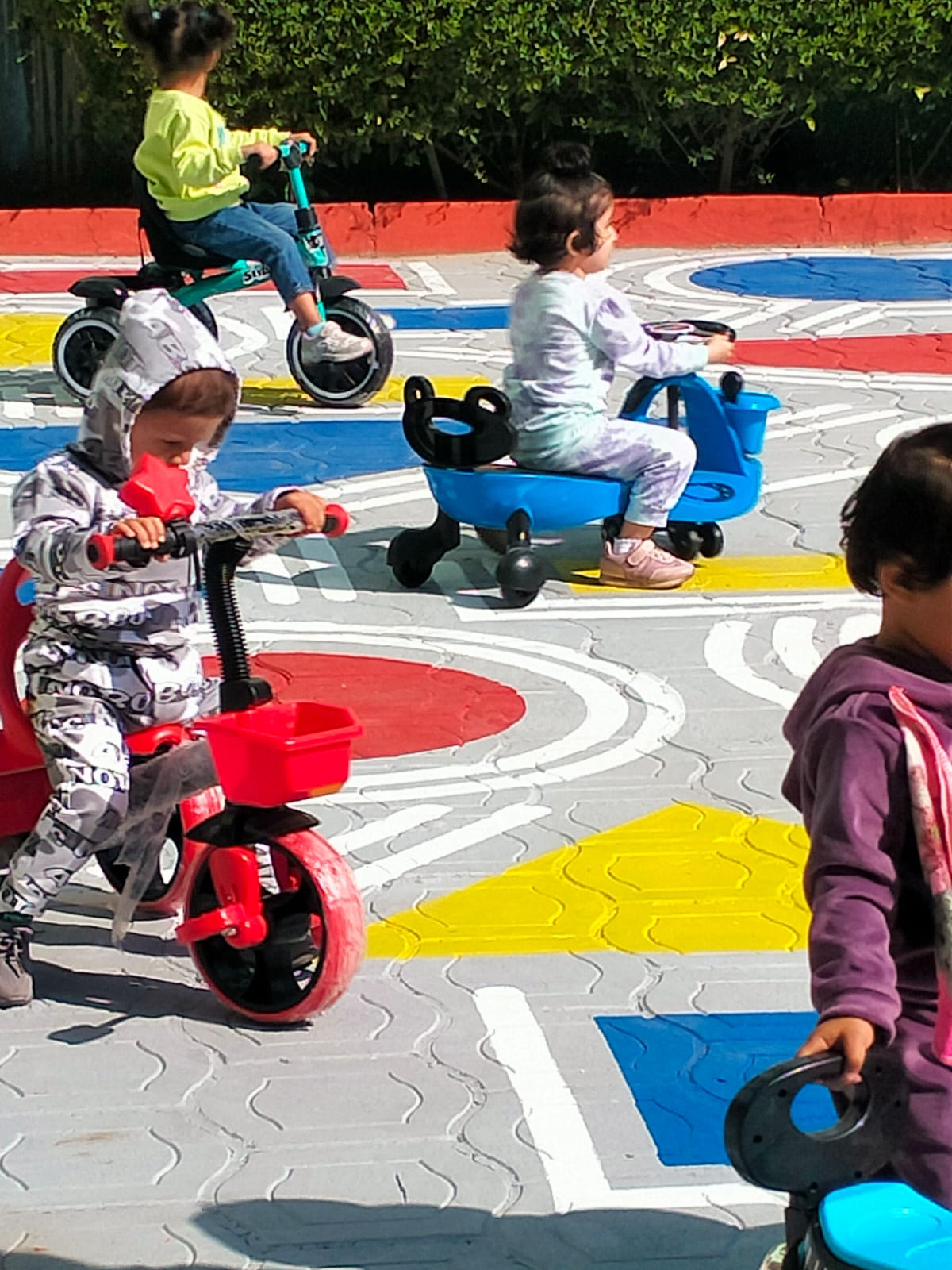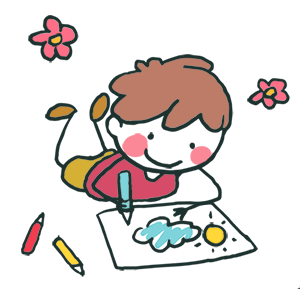
The WizzTots Advantages
Welcome and Free Play : Children are welcomed into a warm, beautifully set-up classroom filled with energizing music. Through play and social interactions,
children channelize their energies and settle into the environment.
Circle Time : Circle time is a daily routine that energizes children and fosters a sense of community. As part of the circle time, children engage in agenda setting, poem sing-alongs,
storytelling, and discussions on unit specific things.
Station time : Station time is planned by educators to provide children with opportunities to build skills, and pique their curiosity in different areas. Educators design 3 to 4 stations centered around sensory exploration,
fine motor skills, read-a loud, art and design explorations, music, and pretend-play.
Outdoor Play : Play group children spend 30 minutes everyday in the indoor gym or the outdoor play area participating in activities
focused on strengthening their physical skills – yoga exercise and activity.
Snack time : Snack time is an opportunity for educators to model healthy
food habits and discuss different types of foods being eaten in the class.
Reflection Time : After an exhausting and eventful day, children and educators gather to recollect their energy and experiences. Reflection time is an opportunity to discuss the activities of the day, participate in storytelling, or sing unit-specific rhymes.


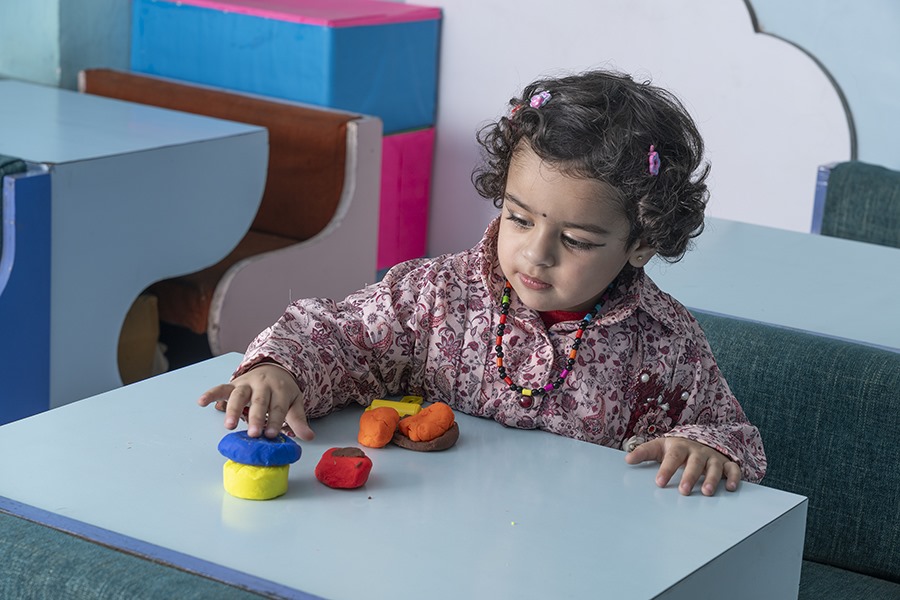
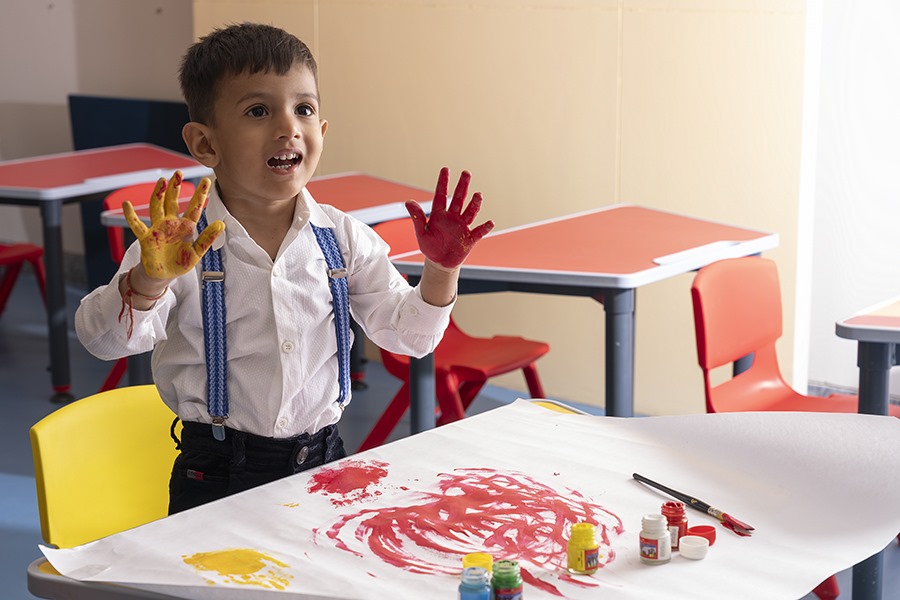


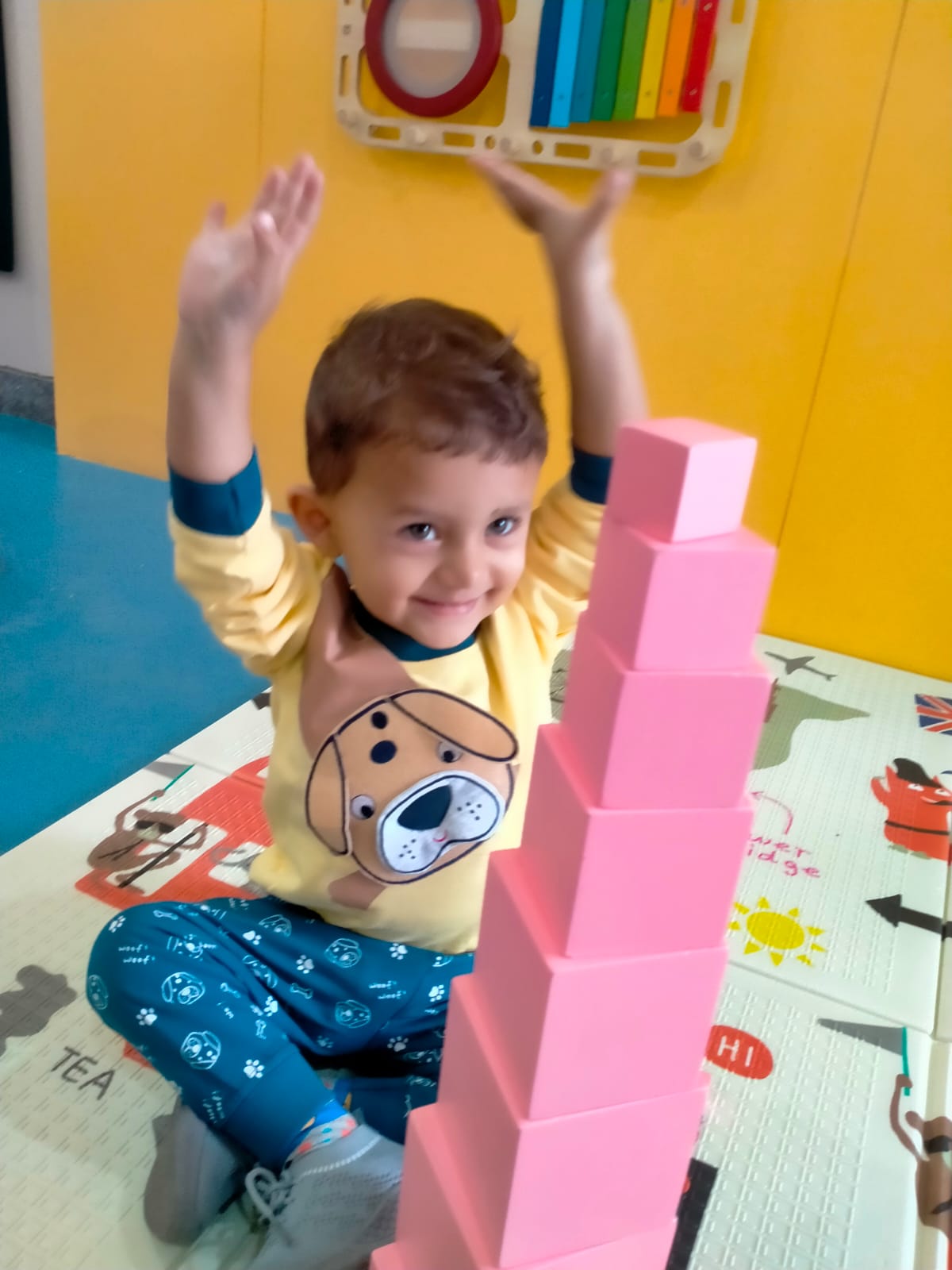
Physical Development • Demonstrating balancing skills • Demonstrating gross motor manipulative skills • Demonstrating fine motor strength and coordination
